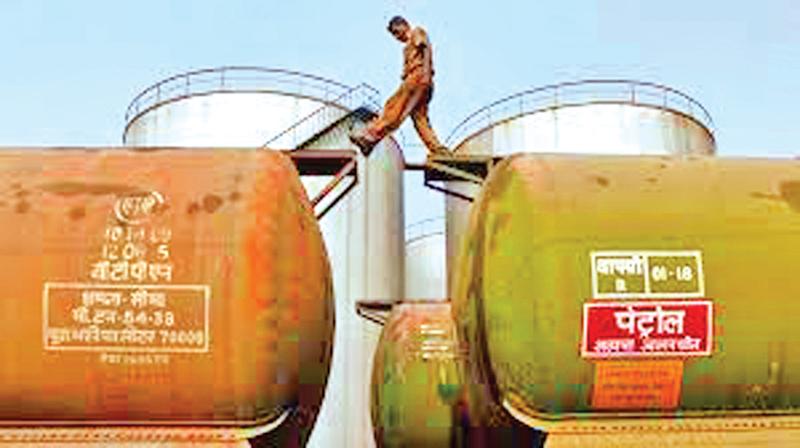
India is making substantial strides in global trading and making headway after the Covid pandemic slowed the global economic outlook for nearly two years.
This has been largely due to the country’s diverse production base and its focus on digital infrastructure. India is becoming increasingly attractive to foreign investors as the economy is expected to grow at an impressive rate in the coming years. India is also a major exporter of products and services and is increasingly seen as a source of skilled labour.
This has enabled the country to establish itself as a major player in the global economy. India’s future looks bright as the country continues to excel in global trading.
At a time when the Western allies headed by the US have imposed sanctions on Russia and moved to isolate the Russian government, India continues to maintain close economic ties with Russia, much to the chagrin of the West.
India and Russia have entered into “advanced negotiations” to strike a free trade deal.
The potential deal could lead to many economic benefits for both countries as well as potentially further increased tensions amongst other world powers. India has a long-standing relationship with Russia, which includes military and economic cooperation, and India is not willing to jeopardise that relationship by aligning with the West.
India also stands to benefit economically from the free trade deal, which is something the West can’t offer.
Speaking on a visit to Delhi, Russian Deputy Prime Minister Denis Manturov, who is also the trade minister, said: “Together with the Eurasian Economic Commission, we are looking forward to intensifying negotiations on a free trade agreement with India.”
He added that the agreement would help increase the volume of trade between the two countries.
Manturov said that the agreement would help create a strong legal framework to facilitate business and investment between the two countries.
The Indian foreign minister, S. Jaishankar, said the Covid pandemic had disrupted discussions between India and the Russian-led Eurasian Economic Union on a trade deal.
Jaishankar said “advanced negotiations” were taking place, according to the Times of India. He also described Delhi’s position with Moscow as among the “steadiest” major relationships in the world.
He emphasised the long-standing partnership between India and Russia, noting that the two countries have a long history of trade, defense, and diplomatic ties.
It was evident that since the days when India gained independence, India has forged close ties with Russia as a reliable partner.
Today, Russia and India are considered strategic partners.
Narendra Modi’s government is also holding trade talks with Britain and the EU. This is likely to stoke tensions with the West before India hosts the G20 summit in Delhi this autumn. Trade talks with Britain and the EU are likely to increase India’s leverage in the global economy. The UK is holding an eighth round of trade talks this spring over a free trade agreement with India.
Kemi Badenoch, the trade secretary, has suggested it could be concluded this year. This would benefit both countries, as it would reduce or eliminate tariffs and other trade barriers that currently exist. This would allow for increased trade between the two countries, boosting both economies.
Trading with Britain does not look inimical to Russia, though the West is not comfortable with the India-Russia trade relationship.
Trade between Russia and India has jumped since the invasion, despite Western efforts to sanction Moscow and cut Russia out of global supply lines.
Highlighting its willingness to trade with Russia, the Indian finance minister, Nirmala Sitharaman, said the country could purchase Russian crude oil near or past the level of a G7 price cap on its exports if Opec’s decision earlier this month to cut output increased global prices.
India is hoping that cheaper Russian oil can help cushion the effects of rising oil prices.
Sri Lanka too stands to benefit from the Indian decision since Sri Lanka is not able to buy cheap oil from Russia but could buy significant volumes from India. India is looking for a more competitively priced oil supply chain, and it would benefit Sri Lanka by providing them with a more accessible source of oil. India’s access to Russian oil could also help reduce the strain on India’s external reserves, allowing them to stabilise their economy and benefit from the lower prices.
Russian oil exports to India have since increased significantly, with India importing over 1.2 million metric tons of crude oil from Russia in April 2020, a 53.5% increase from the same period a year before.
This marks the first time that Russia has outpaced Iraq as India’s top crude oil supplier.
In the global political arena, Prime Minister Narendra Modi’s popularity has soared, and he has emerged as the most popular global leader again. In a new survey, he leaves behind US President Joe Biden and his UK counterpart, Rishi Sunak.
Morning Consult’s latest data, updated on April 25, 2023, showed PM Modi in the top slot. He was followed by Mexican President Lopez Obrador and his Australian counterpart, Anthony Albanese.
PM Modi tops the list with a 79% rating. Other global leaders on the list are US President Joe Biden with a 42% rating at the seventh spot.
Morning Consult is a global decision intelligence firm that uses its proprietary polling technology to survey more than 90,000 members of the general public.
Besides the G20 summit this autumn, this will bring India back to the forefront among emerging global leaders, making an impact as never before. - Indian media
